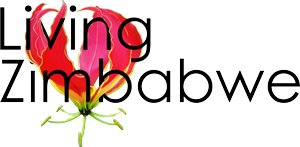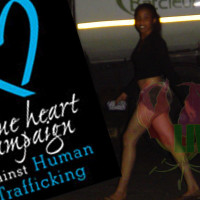For the past few weeks BBC has been showcasing; Working Lives: Human Traffic that highlights the experiences of people who have succumbed to traffickers. This is something that is a problem all over the world. Those who are in desperate situations are even more prone to becoming victim of traffickers. South Africa is a hot stop for such activities and is a source, transit point and destination for human trafficking. Because of Zimbabwe’s proximity to South Africa and perceived greener pastures across the Limpopo, many of its people are vulnerable.
A certain individual living in Zimbabwe had been hearing all sorts of stories about the kinds of employment that a number of Zimbabwean women were involved. He wanted to find out a bit more about how they ended up in the situations they were in. A number of them were working as prostitutes in not so inviting areas such as Hillbrow, Johannesburg and against their will. On a trip to South Africa, this person decided to find out how some these women ended up in the situations they were in.
Here is a quick rundown of how a young woman who has her whole life ahead of her ends up selling her body against her will (please note that this is only one of the many ways that a young woman or child ends up as a victim of such a crime):
- Recruiters who may or may not be from Zimbabwe end up in Zimbabwe showing off material possessions and lots of cash
- They befriend people who they think they could easily entice to South Africa to live the life they are living and be able to support their loved ones back home
- Once the recruiter has left Zimbabwe, they make plans for their target to travel to South Africa and stay in touch with them to put them at ease and make them feel more secure
- They two arrange with each other to meet at Park Station for example but when the unsuspecting girl arrives in Johannesburg her new friend is nowhere to be found
- The recruiter who knows when the girl she had recruited is due to arrive from where on in she is pretty much handed over into the hands of the traffickers
- On arrival in South Africa and not knowing what to do, the girl is also robbed of everything and with no passport (if she entered into the country legally), money or belongings she is left in an even more vulnerable position
- With her in state of distress, she is approached by a concerned citizen who offers to help her get on her feet and make enough money to either go back home or start a life over there
- By accepting the offer this girl has gotten herself into situation where she is eventually ‘broken down’ by these syndicates. She then finds herself on the streets working as a prostitute and making hundreds if not thousands of rands a night not for themselves but the human-trafficking syndicates they work for
Another question that may come to mind is why don’t they get out of these situations once in them. That’s a hard one to answer. The syndicates may be that good at breaking down their victims psychologically to the point where they feel they have no way out. Once there, escape from that world is an impossible dream. Those who do manage to escape but are caught again by the syndicates face very harsh consequences. This serves as a further deterrent for others thinking about doing the same.
Why even write about human trafficking? To show that Zimbabwe is not immune to such activities as some people may seem to think it. Zimbabwe, like South Africa is also a source, transit point and destination for trafficking. Not all of the victims end up being sexually exploited, some of them end up in forced labour and become modern day slaves. Human trafficking is a billion dollar industry and about half of those trafficked are children. Who is to blame for trafficking and who should be held accountable? Is it the traffickers? The people buying people? Those selling off their family members? The people who solicit prostitutes? Governments? May all are to blame and some more than others.
Some of you may turn a blind eye to this but for a minute or two, just imagine your daughter, sister, cousin, aunt or someone else you care about is trafficked? Imagine you get to learn that they have been forced into such a situation. Imagine they are being raped multiple times night after night and/or being forced to work day and night without fair compensation?
More needs to be and can be done by governments in Southern Africa to combat the issue. People are at risk but the situation in Zimbabwe makes people even more vulnerable. Zimbabwe just happens to be one of the countries on a recently released report that is failing to meet international standards in addressing the problem. Until such a time when people can come up with effective ways of combating human trafficking, more and more people will succumb.
If you would like to find out a bit more about human trafficking, visit the United Nations Office on Drugs and Crime. You may also be interested in taking a look at the Trafficking in Persons Report 2010 by the U.S. Department of State. Maybe there is something you can do to help fight against human trafficking.



No comments yet.